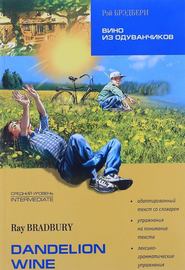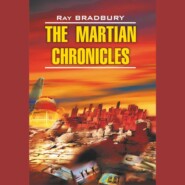По всем вопросам обращайтесь на: info@litportal.ru
(©) 2003-2024.
✖
Green Shadows, White Whales
Автор
Год написания книги
2018
Настройки чтения
Размер шрифта
Высота строк
Поля
“Reason has nothing to do with it,” I blurted.
His pencil stayed, while his gaze lifted.
“That’s a grand start, but what does it mean?”
“Madness.”
He leaned forward, pleased, as if a riot had surfed at his feet.
“What kind would that be?” he asked politely.
“Two kinds. Literary and psychological. I am here to flense and render down the White Whale.”
“Flense.” He scribbled. “Render down. White Whale. That would be Moby Dick, then?”
“You read!” I cried, taking that same book from under my arm.
“When the mood is on me.” He underlined his scribbles. “We’ve had the Beast in the house some twenty years. I fought it twice. It is overweight in pages and the author’s intent.”
“It is,” I agreed. “I picked it up and laid it down ten times until last month, when a movie studio signed me to it. Now I must win out for keeps.”
The customs inspector nodded, took my measurements, and declared: “So you’re here to write a screenplay! There’s only one other cinema fellow in all Ireland. Whatsisname. Tall, with a kind of beat-up monkey face, talked fine. Said ‘Never again.’ Took the ferry to find what the Irish Sea was like. Found out and delivered forth both lunch and breakfast. Pale he was. Barely able to lug the Whale book under one arm. ‘Never again,’ he yelled. And you, lad. Will you ever lick the book?”
“Haven’t you?”
“The Whale has not docked here, no. So much for literature. What’s the psychological thing you said? Are you here to observe the Catholics lying about everything and the Unitarians baring their breasts?”
“No, no,” I said hastily, remembering my one visit here, when the weather was dreadful. “Now between lowerings for the Whale, I will study the Irish.”
“God has gone blind at that. Can you outlast Him? Why try?” He poised his pencil.
“Well …,” I said, putting the black sack over my head, fastening the noose about my neck, and yanking the lever to drop the trapdoor, “excuse me, but this is the last place in the world I’d dream of landing. It’s all such a mystery. When I was a kid and passed the Irish neighborhood on one side of town, the Micks beat the hell out of me. And when they ran through our neighborhood, we beat them. It has bothered me half a lifetime why we did what we did. I grew up nonplussed—”
“Nonplussed? Is that all?” cried the Official.
“—with the Irish. I do not dislike them so much as I am uncomfortable with my past. I do not much care for Irish whiskey or Irish tenors. Irish coffee, too, is not my cup of tea. The list is long. Having lived with these terrible prejudices, I must fight free of them. And since the studio assigned me to chase the Whale in Ireland, my God, I thought, I’ll compare reality with my hand-me-down suspicions. I must lay the ghost forever. You might say,” I ended lamely, “I’ve come to see the Irish.”
“No! Hear us, yes. But our tongue’s not connected to our brain. See us? Why, lad, we’re not here. We’re over there or just beyond. Lend me those glasses.”
He reached gently to take the spectacles from my nose.
“Ah, God.” He slipped them on. “These are twenty-twenty!”
“Yes.”
“No, no! The focus is too exact. You want something that bends the light and makes a kind of mist or fog, not quite rain. It’s then you’ll see us floating, almost drowned, on our backs, like that Hamlet girl …?”
“Ophelia?”
“That’s her, poor lass. Well!” He perched the glasses on my nose. “When you want a fix on the mob, take these off or you’ll see us marching left when we should be lurching right. Still, you will never probe, find, discover, or in any way solve the Irish. We are not so much a race as a weather. X-ray us, yank our skeletons out by the roots, and by morn we’ve regrown the lot. You’re right, with all you’ve said!”
“Am I?” I said, astonished.
The inspector drew up his own list behind his eyelids:
“Coffee? We do not roast the bean—we set fire to it! Economics? Music? They go together here. For there are beggars playing unstrung banjos on O’Connell Bridge; beggars trudging Pianolas about St. Stephen’s Green, sounding like cement mixers full of razor blades. Irish women? All three feet high, with runty legs and pig noses. Lean on them, sure, use them for cover against the rain, but you wouldn’t seriously chase them through the bog. And Ireland itself? Is the largest open-air penal colony in history … a great racetrack where the priests lay odds, take bets, and pay off on Doomsday. Go home, lad. You’ll dislike the lot of us!”
“I don’t dislike you—”
“But you will! Listen!” The old man whispered. “See that clump of Irishmen hurrying to get off the island before it sinks? They’re bound for Paris, Australia, Boston, until the Second Coming.
“Why all the riot to get out of Eire, you ask? Well, if you got your choice Saturday night of, one, seeing a 1931 Greta Garbo fillum at the Joyous Cinema; or, two, making water off the poet’s statue near the Gate Theatre; or, three, throwing yourself in the River Liffey for entertainment, with the happy thought of drowning uppermost, you might as well get out of Ireland, which people have done at the rate of a mob a day since Lincoln was shot. The population has dropped from eight million to less than three. One more potato famine or one more heavy fog that lasts long enough for everyone to pack up and tiptoe across the channel to disguise themselves as Philadelphia police, and Ireland is a desert. You’ve told me nothing about Ireland I don’t already know!”
I hesitated. “I hope I haven’t offended you.”
“It’s been a pleasure, hearing your mind! Now, this book you’ll be writing. It’s … pornographic?”
“I will not study the sex habits of the Irish, no.”
“Pity. They are in dire need. Well, there’s Dublin, straight on! Good luck, lad!”
“Goodbye … and thanks!”
The old man, incredulous, stared at the sky. “Did you hear him? Thanks! he said.”
I ran to vanish in lightning, thunder, darkness. Somewhere in the noon twilight, a harp played off key.
Chapter 2 (#ulink_f0be625a-ed90-5d29-8271-4dbf41c1c3c3)
On and off the boat train and along the rainy streets by taxi, I finally signed in at the Royal Hibernian Hotel and telephoned Kilcock to see how I might find the Devil Himself, as the reception clerk put it while handing my luggage to the bellboy, who shuddered me by elevator up to my room to plant my luggage where it wouldn’t take root, as he said, and backed off from me as if he had searched a mirror and found no image.
“Sir,” he said. “Well, are you some sort of famous author?”
“Sort of,” I said.
“Well.” The bellboy scratched his head. “I been asking around the pub and the lobby and the kitchen, and no one ever heard of you.”
At the door, he turned.
“But don’t worry,” he said. “Your secret’s safe with me.”
The door shut quietly.
I was suddenly mad for Ireland or the Whale. Not knowing which, I grabbed a cab that veered through streets filled with tens of thousands of bicycles. We headed west along the Liffey.
“Is it the long or short you’d want?” asked my driver. “The long way around or the short arrival?”
“Short—”

















